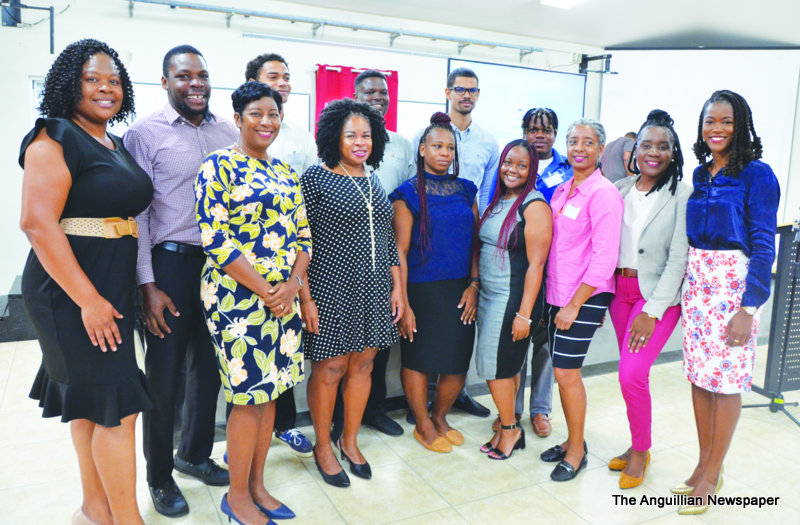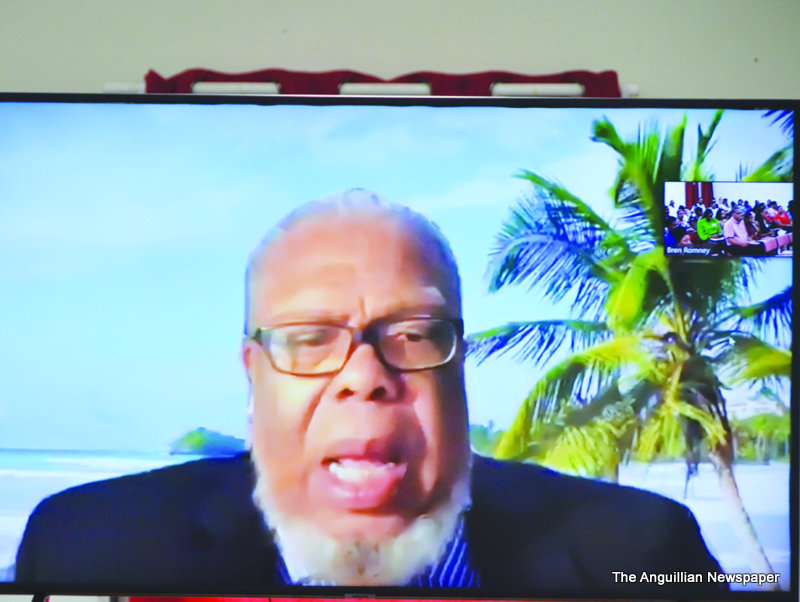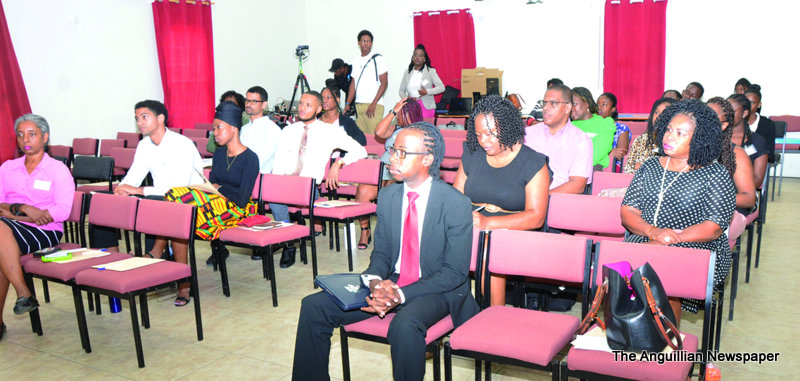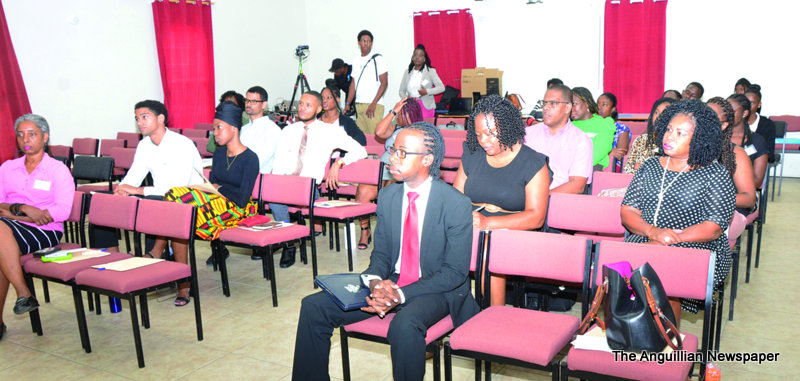The Department of Youth and Culture on Monday, September 28th, hosted the 13th Annual Youth Conference under the theme “Co-creating Sustainable Futures in Anguilla – The Youth Policy Imperative”. The main thrust of the two-day conference was to encourage dialogue with youth in ratifying a standardised draft Youth Policy that would drive youth development in Anguilla over the period 2020 to 2025.
Following the playing of the National Song, by Michael “Dumpa” Martin, Pastor Denroy Gumbs offered the invocation and Mya Lake, Ministerial Assistant (Home Affairs), introduced the Chairperson who was Kyrleson Lewis-Klaren.
Director of Youth and Culture, Avon Carty, addressed the audience with opening remarks: “This week we are celebrating our National Youth Week. This event is coordinated by the youth division of the Department of Youth and Culture — working with a team comprising representatives of the Anguilla National Youth Council, the National Youth Ambassadors Corpse and the Ministry of Social Development.
“This year, we celebrate the sixth Annual Youth Week, and each year we have seen growth as an indication of the engagement of our young people in youth affairs. As in the five years prior, once again, the committee has spent many hours in organising what we are confident will be another productive and exciting Youth Week. The overall theme for Youth Week 2020 is ‘Co-creating Sustainable Futures in Anguilla’, and for the next two days we will be focusing on our Youth Policy Imperative.”
Ms. Carty insisted that since the theme is both rich and thought- provoking, it deserves much reflection on the part of the participants during the discussion phase on the Draft Policy. She made mention of the word “sustainable” in the theme, remarking that it is a word that is loosely used but which requires great effort to practice. She alluded to the fact that the concepts of the United Nations Sustainable Development Goals were featured right, left and centre in the recently held political debates hosted by the leaders of the Anguilla Youth Council.
“So as we review our Draft National Youth Policy,” she said, “the different elements of creativity, teamwork, sustainability and the future, all come together in the exercise of co-creating a sustainable future for youth affairs in Anguilla.”
Representing the President of the Anguilla National Youth Council was a brilliant junior of the Council, Master Jo’Ardie Richardson, who is an understudy to the President. He said: “It is quite evident that Anguilla is experiencing a changing tide. Whether we journey through calm waters, or rough oceans, our future is determined by the decisions that we make today…Our government, youth and social institutions must all move forward with one voice in order to attain sustainable development goals.”
While he remarked on the fact that the work begun by the Youth Council must be built upon — and continue — he noted that co-creating sustainable futures must also involve a synergy of Caribbean youth, united for the same cause. “Caribbean youth,’’ he stated, “serves as a call to action for youth across the region to unite, to be re-energised, and to be re-focused in our quest for sustainable regional development.”
Speaking on the importance of a Youth Policy and its relationship to the theme, Kasseem Forde, Dean of the National Youth Ambassadors Corps, stated: “As we look at the theme ‘Co-creating Sustainable Futures in Anguilla – The Youth Policy Imperative’, we can infer that a Youth Policy is indeed essential to co-creating sustainable futures in Anguilla. We need, then, to answer the questions: ‘What is co-creating?’ and ‘What does a sustainable future look like for Anguilla?’ These are a couple of the questions that must be addressed within the context of the Youth Policy, over the next two days, at this National Conference.”
He noted that the conference will be characterised by discussions based on the strategic areas which were presented to the participants in the past, and he observed that these strategies will be finalised into the formation of the actual Youth Policy during the conference.
The Hon. DeeAnn Kentish-Rogers, Minister of Social Development and Education, spoke in complimentary tones of the Youth Department’s role in youth development. She began: “First, I commend you for the planning and execution of this important national conference on youth development. The fact that this is now the thirteenth annual event is a testament to your hard work and dedication.
“As Minister with responsibility for youth affairs and, by definition, a youth myself, I have observed for many years the innovative projects and programme that the Department of Youth & Culture have undertaken to empower, encourage and develop our youth.”
“I am impressed with the work of the Department,” she said, “and moreover, I am impressed with the work and progress of our youth who are commonly referred to as the future, but who I refer to as ‘the now’. I assure you the Ministry of Social Development and Education is supportive of your efforts, and we will continue to assist in empowering you to achieve your goals by creating an environment in which you can flourish.”
After elaborating to some extent on the theme and its implications for the development of youth for a sustainable future, Minister Kentish-Rogers declared the 13th Annual National Conference of Youth and Development open.
A presentation on the Draft National Youth Policy was made via live video feed with Youth Policy Expert, Mr. Henry W. Charles, lecturing from Trinidad. Discussions on his presentation and the Youth Policy followed.
– Staff Reporter, James R. Harrigan












